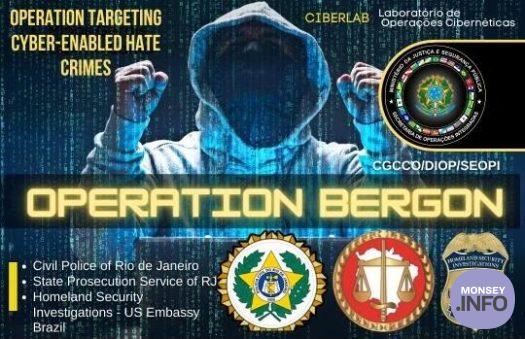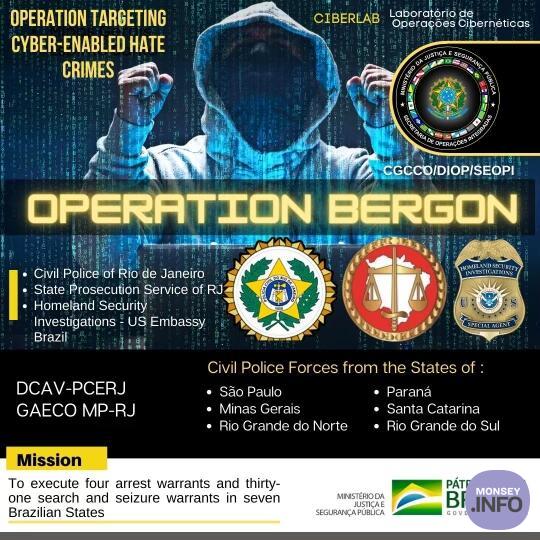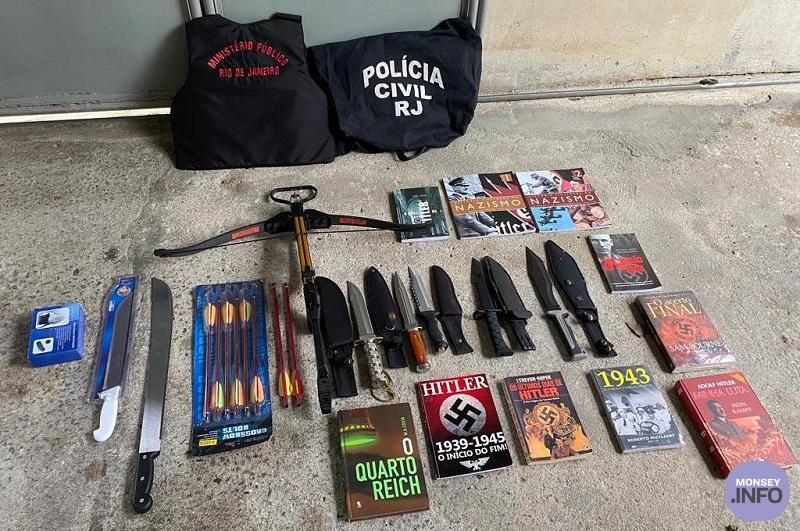
Neo-Nazi Attacks Averted With Major Bust in Brazil
Investigative efforts by Brazilian authorities and U.S. Immigration and Customs Enforcement (ICE) Homeland Security Investigations (HSI) resulted in the arrest of four individuals involved in online threats, hate crimes, and the planning of mass casualty events.
On Dec. 16, state police and prosecutors’ offices across seven Brazilian states executed 31 search warrants and four arrests based on investigative leads provided by HSI to the Brazilian Ministry of Justice and Public Security (MJSP). While executing the search warrants, Brazil police found homemade explosives, weapons, Nazi paraphernalia, and detailed plans of future attacks. One of the perpetrators later stated that he was planning to use these explosives during a New Year’s celebration in the state of São Paulo.
The individuals in question were part of Neo-Nazi cells that were planning attacks against public areas, such as schools, as well as hate crimes against Jewish and black civilians. Operation Bergón was initiated in May 2021 due to criminal neo-Nazi groups using U.S.-based online platforms to call for violence against Jewish and black civilians. The name of the operation alludes to the French nun Denise Bergón, who used her convent to house Jewish children among Catholic students during World War II, avoiding being captured by the Nazis.
Operation Bergón is the result of multiple investigative leads passed by HSI to the MJSP Secretariat for Integrated Operation’s Cyber Laboratory between May and November 2021. Multiple arrest and search/seizure warrants were conducted simultaneously by Brazilian Civil Police forces in the States of Rio de Janeiro, Minas Gerais, São Paulo, Paraná, Santa Catarina, Rio Grande do Sul and Rio Grande do Norte.
On May 8, when the investigation began, HSI Brasilia shared information with Brazilian authorities regarding multiple planned mass casualty attacks at local schools and other public locations throughout Brazil. On May 12, Rio de Janeiro Civil Police (PCERJ) arrested an individual in Rio de Janeiro and seized his electronic devices. Upon further analysis of the devices, PCERJ developed information about potential targets that were in communication with this individual, which led to the recent seizures and arrests.
HSI is a directorate of ICE and the principal investigative arm of the U.S. Department of Homeland Security (DHS), responsible for investigating transnational crime and threats, specifically those criminal organizations that exploit the global infrastructure through which international trade, travel, and finance move.
HSI’s workforce of over 10,400 employees consists of more than 7,100 special agents assigned to 220 cities throughout the United States, and 86 overseas locations in 54 countries. HSI’s international presence represents DHS’s largest investigative law enforcement presence abroad and one of the largest international footprints in U.S. law enforcement.











